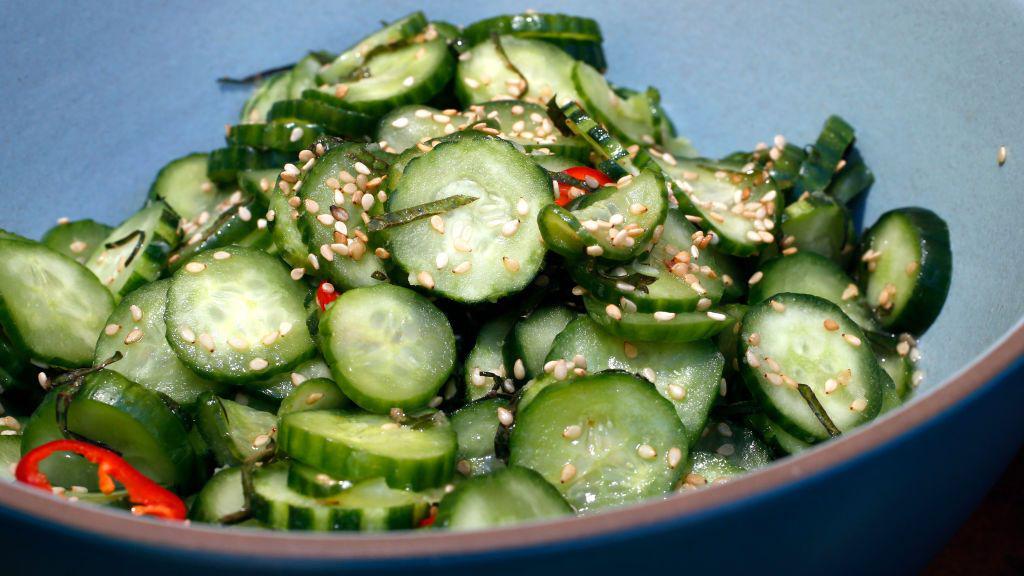TikTok blamed for hit to Iceland cucumber supply
Icelandic supermarkets are facing a major cucumber shortage due to a viral TikTok trend that has driven an unprecedented surge in demand.
The trend started when social media influencers in Iceland began promoting a salad recipe featuring grated cucumbers, sesame oil, garlic, rice vinegar, and chili oil.
The recipe’s popularity has overwhelmed local farmers, according to Iceland’s Horticulturists’ Sales Company (SFG), leaving them struggling to meet the skyrocketing demand.
While the supermarket chain Hagkaup questioned whether the trend was the sole cause of the spike in cucumber sales, it acknowledged that cucumber purchases have more than doubled.
SFG’s marketing director, Kristín Linda Sveinsdóttir, noted that Icelandic farmers are currently unable to keep up with the increased consumer demand but expects that supply will return to normal in about a week. She also mentioned that other ingredients from the recipe are selling out as well.
The viral trend originated in Canada, where TikToker Logan Moffitt, known as “cucumber guy,” has been sharing innovative cucumber recipes. Moffitt, who has over 5.5 million followers, has been posting daily cucumber recipes since July, often starting his videos with the phrase, “Sometimes, you just need to eat a whole cucumber.”
The one that appears to have gripped users in Iceland uses sesame oil and rice vinegar, but sometimes Logan mixes in cream cheese, avocado, and even smoked salmon.
Despite the influencer’s enduring online popularity, experts in Iceland have been keen to play-down his association with the ongoing shortages.
Hagkaup told the BBC it is common to experience shortages in Icelandic cucumber at this time of year.
While the company’s food product manager, Vignir Þór Birgisson, said sales of ingredients like sesame oil and some spices have “doubled” in his stores, he said the current shortage is not solely due to the TikTok trend.
Ms Sveinsdóttir from the SFG also expressed some scepticism, suggesting other factors were at play. Some cucumber farmers replace their cucumber plants at this time of year, which are not yet producing large amounts, she said.
In addition to this, schools are returning from the summer holidays, which puts additional pressure on supplies.
“Everything is happening at the same time,” Ms Sveinsdóttir observed, but said the social media trend remained one of the main contributing factors.
“This is the first time we have experienced something like this,” Ms Sveinsdóttir said, adding that had the TikTok trend become popular earlier in the summer, “when the [cucumber] production was in full blast” and the shortage would not have been noticeable.
Farmers in Iceland – which has a population of 393,600 – produce about six million cucumbers, Ms Sveinsdóttir told the BBC.
They pride themselves on the volume of fresh goods the country can produce, despite the often extreme weather conditions.



